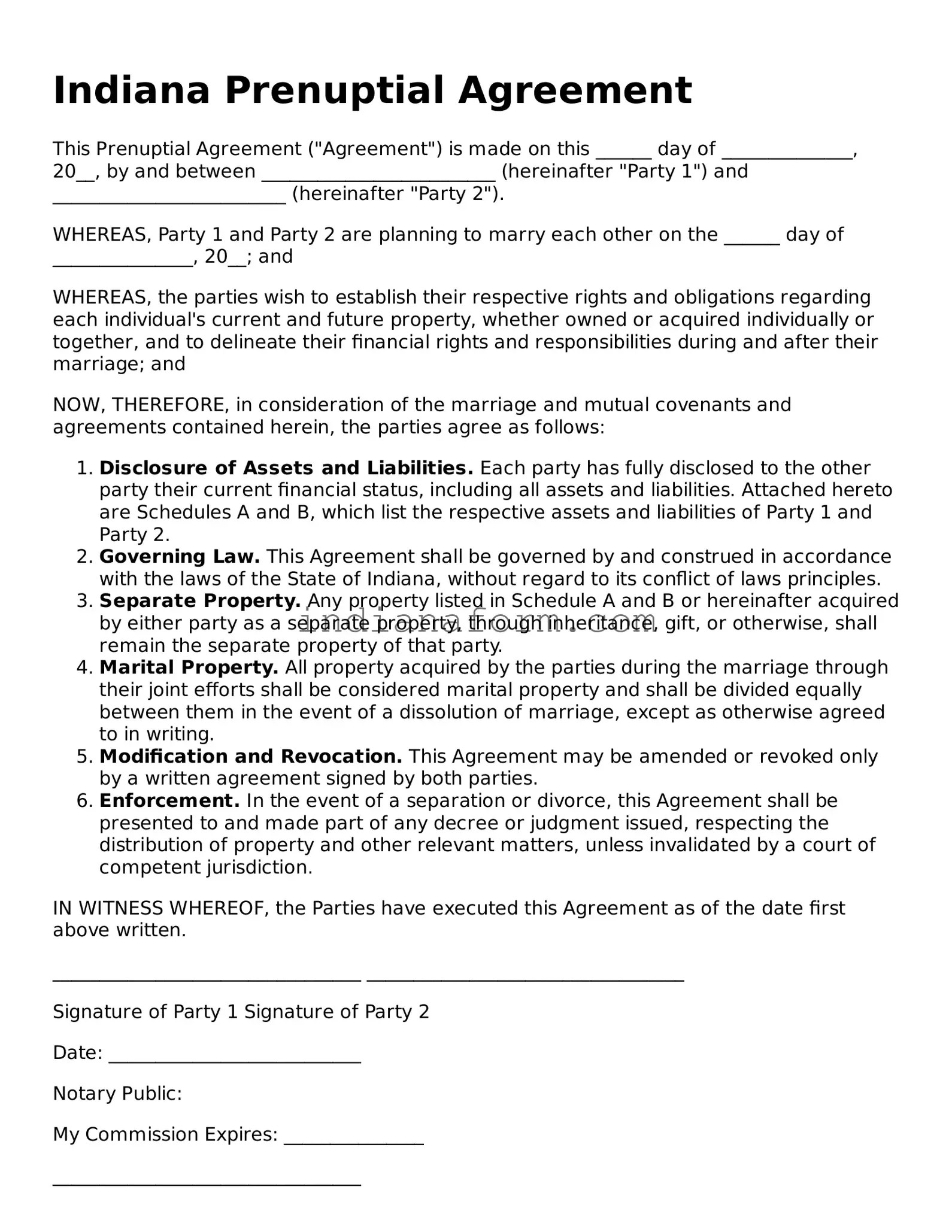Indiana Prenuptial Agreement
This Prenuptial Agreement ("Agreement") is made on this ______ day of ______________, 20__, by and between _________________________ (hereinafter "Party 1") and _________________________ (hereinafter "Party 2").
WHEREAS, Party 1 and Party 2 are planning to marry each other on the ______ day of _______________, 20__; and
WHEREAS, the parties wish to establish their respective rights and obligations regarding each individual's current and future property, whether owned or acquired individually or together, and to delineate their financial rights and responsibilities during and after their marriage; and
NOW, THEREFORE, in consideration of the marriage and mutual covenants and agreements contained herein, the parties agree as follows:
- Disclosure of Assets and Liabilities. Each party has fully disclosed to the other party their current financial status, including all assets and liabilities. Attached hereto are Schedules A and B, which list the respective assets and liabilities of Party 1 and Party 2.
- Governing Law. This Agreement shall be governed by and construed in accordance with the laws of the State of Indiana, without regard to its conflict of laws principles.
- Separate Property. Any property listed in Schedule A and B or hereinafter acquired by either party as a separate property, through inheritance, gift, or otherwise, shall remain the separate property of that party.
- Marital Property. All property acquired by the parties during the marriage through their joint efforts shall be considered marital property and shall be divided equally between them in the event of a dissolution of marriage, except as otherwise agreed to in writing.
- Modification and Revocation. This Agreement may be amended or revoked only by a written agreement signed by both parties.
- Enforcement. In the event of a separation or divorce, this Agreement shall be presented to and made part of any decree or judgment issued, respecting the distribution of property and other relevant matters, unless invalidated by a court of competent jurisdiction.
IN WITNESS WHEREOF, the Parties have executed this Agreement as of the date first above written.
_________________________________ __________________________________
Signature of Party 1 Signature of Party 2
Date: ___________________________
Notary Public:
My Commission Expires: _______________
_________________________________
Signature of Notary Public
This document is provided for informational purposes only and may not cover all relevant legal issues. Parties are encouraged to seek legal advice from a licensed attorney in Indiana for their specific situation.

